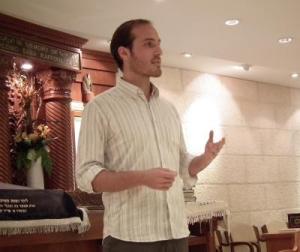
In Miami, fancy, expensive cars are everywhere. They are just one more way that society encourages people to show off, catering to egos rather than building true self-esteem. Unfortunately, ego can eventually destroy you (as Korach discovers in this week's parsha), while true self-esteem builds you up from within.
Before I started my life as a traveling rebbetzin, I was living in Miami. Miami is a fabulous place (we’re actually visiting right now) and I truly loved living here. Unfortunately, it shares a seductive trap with many other trendy first-world cities: it is a place that caters to the ego.
It would be hard to deny that this is a superficial and ego-stroking type of place. If you turn on the radio, at least half of the ads are for plastic surgery. If you drive down the road, the billboards show beautiful and scantily-clad women. The very society is shiny, with sparkling new cars, fancy jewelry, and haute couture clothing. Living in Miami, these things are hard to avoid seeing… and just as hard to avoid absorbing. This culture, like many in the affluent first world, is designed to stroke your ego – and to give you the tools to stroke it yourself.
So when Rabbi Ben whisked me off to travel in places like India and Nepal, I was in a bit of shock. I went from a place where appearance is of ultimate importance to a land where nobody cares what you wear. There could be no greater contrast. I had to accept that I had given up my car, my apartment, my beautiful furniture, my job in downtown Miami… and instead learn to embrace myself. I had to learn to let go of my ego and instead, present my true self to the world. In other words, I had to begin the transition from ego to self-esteem.
This struggle isn’t new, not by a long shot. In fact, we see it in this week’s parsha. Korach is the embodiment of ego. Seeing that Moses and Aaron are elevated to higher positions, he can’t stand the thought that he might not be so elevated. His ego was wounded and he sought to defend it by lashing out at Moses, making the appealing argument that all the Jews are holy and therefore equal, with no need for a leader. If Korach couldn’t be in charge, he felt that nobody should. Even after he and his followers were swallowed up by the earth, the Jewish people still found it hard to resist his ego-stroking arguments… after all, Korach was telling them how holy and important they all are.
It seems pretty clear that G-d does not like ego. In fact, this is a core concept in Chabad chassidus, which emphasizes self-nullification. If G-d is willing to have the earth swallow up Korach and his followers for their ego-centricism and if He is willing to send a plague upon the whole Jewish nation for theirs, then it’s pretty clear that He isn’t a fan. As Psalm 147 states, “He does not desire [those who place their trust in] the strength of the horse, nor does He want those who rely upon the thighs of man.” In other words, G-d doesn’t want you to show off your fancy car (or horse!) and He doesn’t really care if you look the most attractive of all – He wants something deeper and more meaningful.

These kids live in the poorest region of India and grow up with virtually nothing, yet they are happy - as are the adults who raise them. Why? Because instead of judging one another by external, superficial trappings, people are judged for who they really are... and each and every person is a vital and beloved part of the community. Thus, instead of feeding egos, their spartan life actually contributes to their high self-esteem.
But this doesn’t mean we should feel bad about ourselves. Self-nullification isn’t self-deprication. Instead, we have to cultivate a healthy self-esteem. Self-esteem is based on who we really are, what our purpose is in life, and our infinite value in the eyes of G-d. Aaron successfully stopped the plague that was killing the Jews by walking amongst them with an incense offering. Why did this work? Because incense represents the importance of all Jews, large and small, religious and not, no matter who, no matter what.
Included in the incense offering is a spice that smells foul, added to a delicious mix. Combined, the incense offering transcends to a level it could not without the bad smell included. That foul smell represents even those Jews who are far from Torah. The incense served to remind the Jewish people that they were each unique, valuable, and important – whether leaders or not.
Which is a lesson we all need to learn. Next time you get dressed, ask yourself why you’re dressing that way. Is it just because it’s how you feel comfortable? Is it irrelevant to who you are? Is it an expression of your creativity? . . . Or is it because you want to look good? Because you want to show off? Because you want to prove something to someone? We can ask ourselves these questions about so many things in our lives, from the jobs we pursue to the cars we purchase. At the end of the day, G-d loves us not for our wealth or our physical appearance, but for who we are deep inside. It is time we begin to love ourselves for the right reasons, too.
Read More
 Last night I had the privilege of being able to speak at the Chabad of Golden Beach’s famous Wednesday night shiur. Rabbi Chay Amar has been giving a weekly inspiration shiur for years. It was an honor to be invited as a guest speaker!
Last night I had the privilege of being able to speak at the Chabad of Golden Beach’s famous Wednesday night shiur. Rabbi Chay Amar has been giving a weekly inspiration shiur for years. It was an honor to be invited as a guest speaker!










